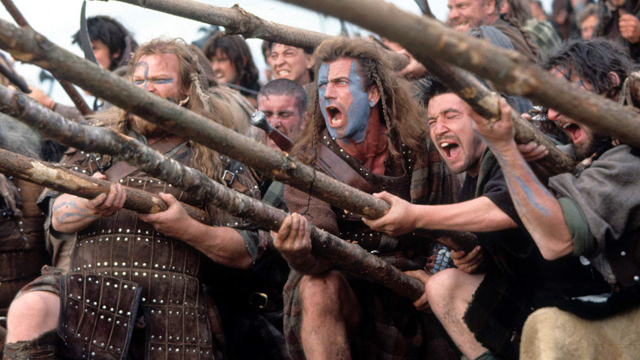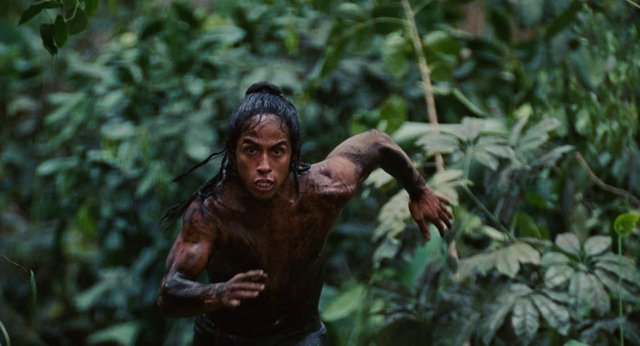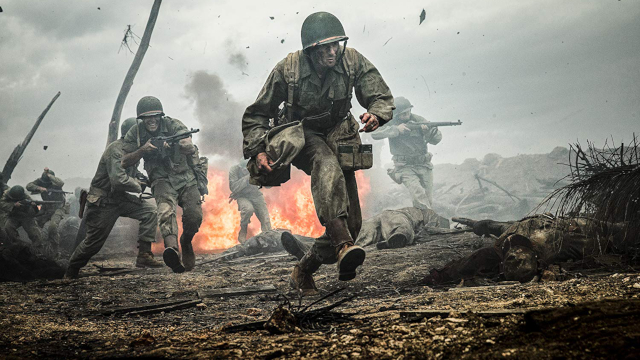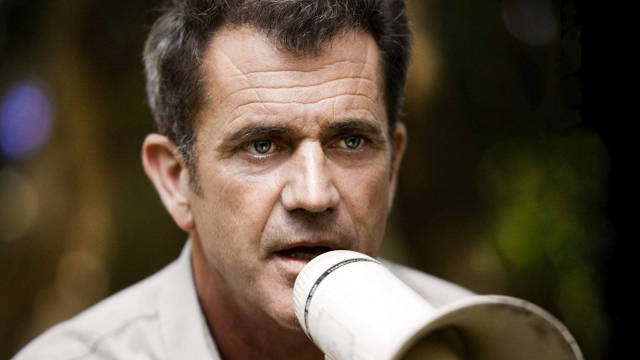Mel Gibson is an icon. Pure and simple. From Martin Riggs, William Wallace, Mad Max, and all the way to even Hamlet, he has been lighting up the silver screen for decades. In front of the camera, Gibson is one of those actors that can make us laugh (Maverick), cry (Forever Young), cheer (The Patriot), and be exhilarated (We Were Soldiers). Not only that, but he has lent his voice to some classic animation (Pocahontas, Chicken Run). So iconic is he that he made his way into the third Expendables movie. Sometime in 2019, he will be starring in auteur director S. Craig Zahler’s Dragged Across Concrete. If you are familiar with Zahler’s Brawl in Cell Block 99 or Bone Tomahawk, then you know we will be in for a treat.
However, some of Mel Gibson’s greatest successes have come from behind the camera. His directorial filmography is not too expansive, but it is pretty incredible. His Hacksaw Ridge was so well received in 2016, his first helmed movie in a decade, that his future slate is now full. Soon, we can look forward to The Resurrection of the Christ and a remake of Sam Peckinpah’s The Wild Bunch. In the meantime, let’s look back and rank Mel Gibson’s brief but outstanding directorial efforts.
#5: The Man Without a Face (1993)

The Man Without a Face was Mel Gibson’s directorial debut. It tells the story of a Justin McLeod, a crotchety man with a horribly burned face. Because of the mystery surrounding him and his solitude up in Maine, the town has circulated rumors about him. Until one day, a young boy named Chuck asks Justin to tutor him and help him get into a fancy boarding school. The film follows their warm relationship with respect and trust, only to show how many people find their friendship inappropriate.
Gibson definitely showed that he had a good directorial eye with his first feature. First of all, it was brave for one of Hollywood’s greatest leading men to disfigure his face for the role. Also, credit has to be given to the rookie director for not falling victim of horrible cliches and melodrama. A lesser movie would be ALL about how this friendship between a recluse man and a young boy is creepy. Instead, it stays focused on this tender, respectful, innocent relationship between Justin and Chuck. Nowhere is ANY hint of what Mel Gibson would pull off two short years later. However, this is a quaint, solid drama.
#4: Braveheart (1995)

Braveheart is a Best Picture winner and Mel Gibson was awarded the Best Director Oscar as well for his efforts. Some may think this film ranking fourth is a travesty. However, that is how good Gibson is behind the lens. For those who have been living under a rock for the past few decades, Braveheart is an epic film about Sir William Wallace and his Scottish revolt against King Edward I of England.
The film is just as big, glorious, bloody, romantic, and gritty as you could wish. In 1995, it really was pure Oscar bait. Besides winning the previously mentioned awards, it also walked away with Best Cinematography, Best Sound Editing, and Best Makeup. Easily, it also could have won Best Costumes, Best Production Design, and especially Best Original Score. Say what you will about the near perfection of the rest of the film, but James Horner’s amazing score may be the best he has ever done. You will notice a theme behind these Mel Gibson helmed films, and that is that he injects so much passion into his works. Braveheart is certainly no exception.
#3: The Passion of the Christ (2003)

Speaking of passion, Mel Gibson’s biblical epic lands here. Released on Ash Wednesday back in 2004, there may not be a more controversial film to ever be released. Detractors dismiss the film as torture porn. Or they call it anti-semitic. Some just consider the project an egotistical indulgence by Gibson. Seriously, why would anyone make a movie entirely in Aramaic, a dead language?
Arguments can be made for all of those assertions. However, one thing you can not say is that Mel Gibson didn’t pour his heart and soul into the film. He is a deeply religious man and he wears his beliefs fully on his directorial sleeve. Those convictions bring a gravitas, emotion, and sincerity to the film that is nothing short of incredible. Even the non-religious see what Jesus went through in the last 12 hours of his life and can’t help but be moved by it. The Passion of the Christ is one of the goriest, most violent films of all time (it should have been NC-17). However, it is not without purpose. Mel Gibson and millions of Christians around the world believe that Jesus was their savior. Cinematically his suffering had to be that extreme to merit saving them all from all of their sins.
#2: Apocalypto (2006)

After his astonishing The Passion of the Christ, Mel Gibson upped the ante two years later with Apocalypto. Again, Gibson was directing a hyper-violent film in a dead language (Indigenous Yucatec Mayan). However, Apocalypto is something even more special. This film shows Mel Gibson, the auteur. The man does not need to be driven by personal beliefs or passions. He can just make wonderful art. So off the wall and outside the box is Apocalypto, it feels like a film that only Terrence Malick or Werner Herzog would even attempt.
The film follows Jaguar Paw, a member of a peaceful tribe who has been invaded and pillaged by a neighboring apocalyptic tribe. He manages to hide his family, but he is captured and is set to be a human sacrifice. When a sudden solar eclipse allows Jaguar Paw to escape, we are treated to a frightening cat & mouse chase throughout the Mexican jungle. The film has all the authenticity, violence, and excitement that The Passion if the Christ has, but it has more depth and narrative structure. Apocalypto is simply exhilarating cinema.
#1: Hacksaw Ridge (2016)

Yes. Mel Gibson’s most recent film belongs at the top of his ranked filmography. Actually, if you have noticed, Mel Gibson just got better and better with each film he directed. Hacksaw Ridge brought a violent authenticity to the war genre in a way we haven’t seen since Saving Private Ryan. The film tells the story of Desmond T. Doss (Andrew Garfield, never better). Doss was awarded the Medal of Honor for his service in World War II. Being a Seventh Day Adventist and pacifist, he did it all without ever firing a single shot.
Enough can not be said about the battle scenes in this film. It is horrifying, disgusting, and thoroughly upsetting in its realism. However, it is that realism that makes Doss’s story so amazing and poignant. To watch that man brave the battlefield without a weapon to protect himself is astonishing. He is out there to save lives, not take them, and it makes total sense when you think about it.
However, the film is not just all graphic bullet wounds and blood-soaked battlefields. The first half of the film, where we learn who Desmond Doss is and what his convictions are, are equally well done. In a way, some of the basic training cliches and patriotic speeches are the height of corniness. However, it makes the film feel like those wonderful John Wayne war films old. The audience is lulled into complacency during these delightful, life-affirming scenes. Then they are brought to Hacksaw Ridge, and become emotionally destroyed. Mel Gibson is a violent director. It is the major throughpoint across his films. Though, as proven with Hacksaw Ridge, it always serves a purpose and is never gratuitous.










